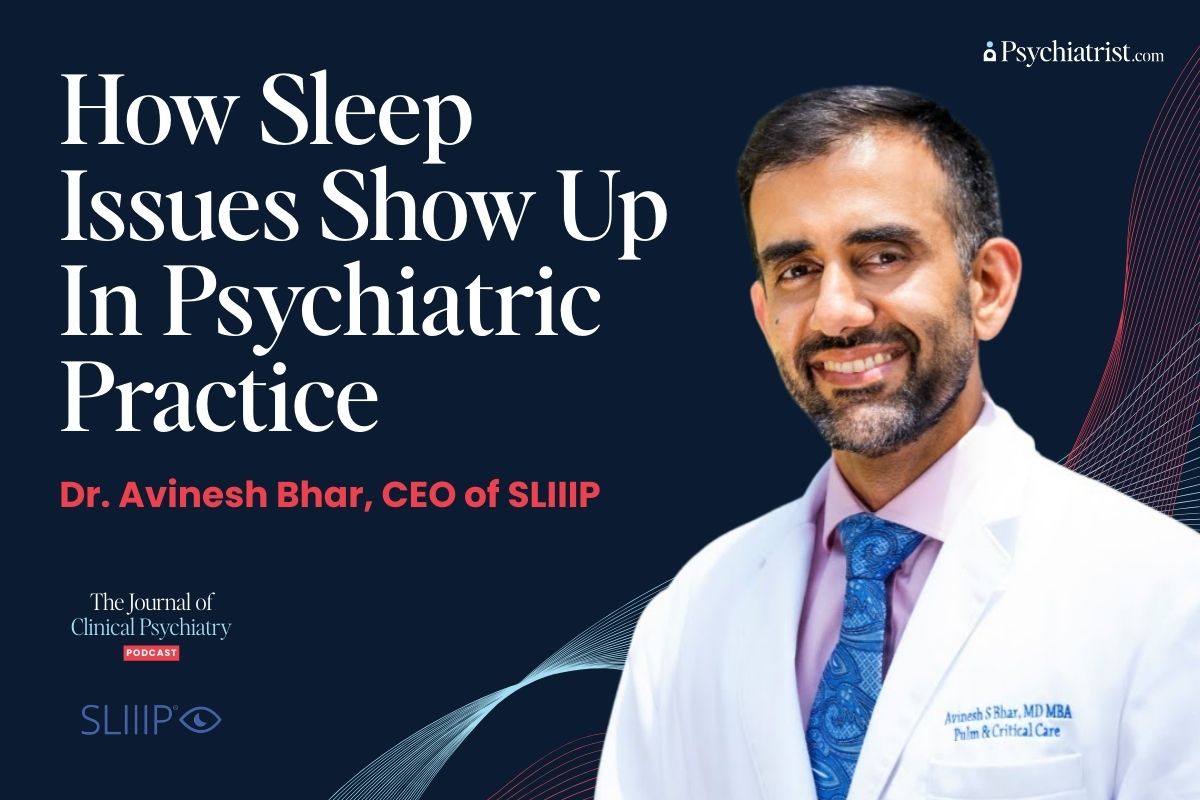
Abstract
Objective: Co-occurrence of posttraumatic stress disorder (PTSD) and insomnia disorder is common and associated with greater psychiatric and functional problems than either condition alone. Evidence-based PTSD treatment often does not effectively decrease insomnia, and insomnia may interfere with the mechanisms underlying PTSD treatment. This study compared the efficacy of integrated cognitive behavioral therapy for insomnia (CBT-I) and prolonged exposure (PE; CBTI-PE) therapy to sleep hygiene and PE (hygiene-PE) in reducing insomnia and PTSD symptoms.
Methods: Ninety-four veterans with insomnia disorder (Insomnia Severity Index [ISI] ≥11) and PTSD (Clinician Administered PTSD Scale for DSM-5 [CAPS-5] diagnosis) were randomized to CBTI-PE or hygiene-PE therapy for 12 weeks of treatment. Recruitment ran from January 2017 to March 2023. Planned outcomes were PTSD symptoms (CAPS-5; PTSD Checklist for DSM-5), quality of life (World Health Organization Quality of Life-BREF [WHOQOL]), and insomnia severity (ISI, subjective sleep efficiency [SE], total sleep time [TST]) between baseline, week 5, posttreatment, and 3-month follow-up.
Results: Randomized participants were 76.6% male, 52.1% white, and mean age was 40.0 years (SD = 11.6). Linear modeling showed PTSD symptoms significantly decreased for most participants, but there were no differences by treatment group (P = .844). While, on average, WHOQOL increased for all participants, there was greater improvement in perceived quality of life (QOL) in CBTI-PE relative to hygiene-PE. ISI decreased, and SE and TST increased for most participants but had statistically and clinically larger changes in CBTI-PE, compared to hygiene-PE (P < .001).
Conclusions: On average, participants had reductions in PTSD symptoms, with no differences between the groups. CBTI-PE produced greater reductions in insomnia symptoms and larger increases in QOL, SE, and TST than hygiene-PE. Together, CBT-I PE is an effective intervention for treating 2 highly co-occurring disorders, insomnia and PTSD.
Trial Registration: ClinicalTrials.gov identifier: NCT02774642.
J Clin Psychiatry 2025;86(3):24m15584
Author affiliations are listed at the end of this article.
Members Only Content
This full article is available exclusively to Professional tier members. Subscribe now to unlock the HTML version and gain unlimited access to our entire library plus all PDFs. If you're already a subscriber, please log in below to continue reading.
References (78)

- Ohayon MM, Shapiro CM. Sleep disturbances and psychiatric disorders associated with posttraumatic stress disorder in the general population. Compr Psychiatry. 2000;41(6):469–478. PubMed CrossRef
- Neylan TC, Marmar CR, Metzler TJ, et al. Sleep disturbances in the Vietnam generation: findings from a nationally representative sample of male Vietnam veterans. Sleep. 1998;155(7):929–933. PubMed CrossRef
- Colvonen PJ, Almklov E, Tripp JC, et al. Prevalence rates and correlates of insomnia disorder in post-9/11 veterans enrolling in VA healthcare. Sleep. 2020;43(12):zsaa119.
- Woodward E, Hackmann A, Wild J, et al. Effects of psychotherapies for posttraumatic stress disorder on sleep disturbances: results from a randomized clinical trial. Behav Res Ther. 2017;97:75–85. PubMed CrossRef
- Colvonen PJ, Straus LD, Drummond SPA, et al. Examining sleep over time in a randomized control trial comparing two integrated PTSD and alcohol use disorder treatments. Drug Alcohol Depend. 2020;209:107905. PubMed CrossRef
- Colvonen PJ, Rivera GL, Park J. Sleep disorders in veterans: prevalence, consequences, and treatment. In: Sleep Medicine and Mental Health. Springer;2020:315–340.
- Zayfert C, DeViva JC. Residual insomnia following cognitive behavioral therapy for PTSD. J Trauma Stress. 2004;17(1):69–73. PubMed CrossRef
- Belleville G, Guay S, Marchand A. Persistence of sleep disturbances following cognitive-behavior therapy for posttraumatic stress disorder. J Psychosom Res. 2011;70(4):318–327. PubMed CrossRef
- Galovski TE, Monson C, Bruce SE, et al. Does cognitive–behavioral therapy for PTSD improve perceived health and sleep impairment? J Trauma Stress. 2009;22(3):197–204. PubMed CrossRef
- Gutner CA, Casement MD, Stavitsky Gilbert K, et al. Change in sleep symptoms across cognitive processing therapy and prolonged exposure: a longitudinal perspective. Behav Res Ther. 2013;51(12):817–822. PubMed CrossRef
- Germain A, McKeon AB, Campbell RL. Sleep in PTSD: conceptual model and novel directions in brain-based research and interventions. Curr Opin Psychol. 2017;14:84–89. PubMed CrossRef
- Spoormaker VI, Montgomery P. Disturbed sleep in post-traumatic stress disorder: secondary symptom or core feature? Sleep Med Rev. 2008;12(3):169–184. PubMed CrossRef
- Bryant RA, Creamer M, O’Donnell M, et al. Sleep disturbance immediately prior to trauma predicts subsequent psychiatric disorder. Sleep. 2010;33(1):69–74.
- Germain A, Buysse DJ, Nofzinger E. Sleep-specific mechanisms underlying posttraumatic stress disorder: integrative review and neurobiological hypotheses. Sleep Med Rev. 2008;12(3):185–195. PubMed CrossRef
- Bonn-Miller MO, Babson KA, Vujanovic AA, et al. Sleep problems and PTSD symptoms interact to predict marijuana use coping motives: a preliminary investigation. J Dual Diagn. 2010;6(2):111–122.
- Gehrman P, Seelig AD, Jacobson IG, et al. Predeployment sleep duration and insomnia symptoms as risk factors for new-onset mental health disorders following military deployment. Sleep. 2013;36(7):1009–1018.
- Wright KM, Britt TW, Bliese PD, et al. Insomnia as predictor versus outcome of PTSD and depression among Iraq combat veterans. J Clin Psychol. 2011;67(12):1240–1258. PubMed CrossRef
- Peterson AL, Goodie JL, Satterfield WA, et al. Sleep disturbance during military deployment. Mil Med. 2008;173(3):230–235. PubMed CrossRef
- Seelig AD, Jacobson IG, Smith B, et al. Sleep patterns before, during, and after deployment to Iraq and Afghanistan. Sleep. 2010;33(12):1615–1622.
- Perlis ML, Giles DE, Mendelson WB, et al. Psychophysiological insomnia: the behavioural model and a neurocognitive perspective. J Sleep Res. 1997;6(3):179–188. PubMed CrossRef
- Bootzin RR, Epstein D, Wood JM. Stimulus control instructions. In: Case studies in Insomnia. Springer;1991:19–28.
- Colvonen PJ, Drummond SP, Angkaw AC, et al. Piloting cognitive behavioral therapy for insomnia integrated with prolonged exposure. Psychol Trauma. 2019;11(1):107–113. PubMed CrossRef
- Breslau N, Roth T, Rosenthal L, et al. Sleep disturbance and psychiatric disorders: a longitudinal epidemiological study of young adults. Biol Psychiatry. 1996;39(6):411–418. PubMed CrossRef
- Livingston G, Blizard B, Mann A. Does sleep disturbance predict depression in elderly people? A study in inner London. Br J Gen Pract. 1993;43(376):445–448. PubMed
- Nadorff MR, Nazem S, Fiske A. Insomnia symptoms, nightmares, and suicidal ideation in a college student sample. Sleep. 2011;34(1):93–98. PubMed CrossRef
- Colvonen PJ, Straus LD, Stepnowsky C, et al. Recent advancements in treating sleep disorders in co-occurring PTSD. Curr Psychiatry Rep. 2018;20(7):48.
- Foa EB, Kozak MJ. Emotional processing of fear: exposure to corrective information. Psychol Bull. 1986;99(1):20–35. PubMed
- Jovanovic T, Norrholm SD, Blanding NQ, et al. Impaired fear inhibition is a biomarker of PTSD but not depression. Depress Anxiety. 2010;27(3):244–251. PubMed CrossRef
- Jovanovic T, Kazama A, Bachevalier J, et al. Impaired safety signal learning may be a biomarker of PTSD. Neuropharmacology. 2012;62(2):695–704. PubMed CrossRef
- Jovanovic T, Sakoman AJ, Kozarić-Kovačić D, et al. Acute stress disorder versus chronic posttraumatic stress disorder: inhibition of fear as a function of time since trauma. Depress Anxiety. 2013;30(3):217–224.
- Sturm A, Czisch M, Spoormaker VI. Effects of unconditioned stimulus intensity and fear extinction on subsequent sleep architecture in an afternoon nap. J Sleep Res. 2013;22(6):648–655. PubMed CrossRef
- Van der Helm E, Yao J, Dutt S, et al. REM sleep depotentiates amygdala activity to previous emotional experiences. Curr Biol. 2011;21(23):2029–2032. PubMed CrossRef
- Spoormaker VI, Sturm A, Andrade KC, et al. The neural correlates and temporal sequence of the relationship between shock exposure, disturbed sleep and impaired consolidation of fear extinction. J Psychiatr Res. 2010;44(16):1121–1128. PubMed CrossRef
- Rothbaum BO, Davis M. Applying learning principles to the treatment of Post Trauma reactions. Ann N Y Acad Sci. 2003;1008(1):112–121. PubMed CrossRef
- Acheson DT, Gresack JE, Risbrough VB. Hippocampal dysfunction effects on context memory: possible etiology for posttraumatic stress disorder. Neuropharmacology. 2012;62(2):674–685. PubMed CrossRef
- Ross RJ, Ball WA, Dinges DF, et al. Rapid eye movement sleep disturbance in posttraumatic stress disorder. Biol Psychiatry. 1994;35(3):195–202. PubMed CrossRef
- Fu J, Li P, Ouyang X, et al. Rapid eye movement sleep deprivation selectively impairs recall of fear extinction in hippocampus-independent tasks in rats. Neuroscience. 2007;144(4):1186–1192. PubMed CrossRef
- Pace-Schott EF, Milad MR, Orr SP, et al. Sleep promotes generalization of extinction of conditioned fear. Sleep. 2009;32(1):19–26. PubMed
- Spoormaker VI, Schröter MS, Andrade KC, et al. Effects of rapid eye movement sleep deprivation on fear extinction recall and prediction error signaling. Hum Brain Mapp. 2012;33(10):2362–2376.
- Marshall AJ, Acheson DT, Risbrough VB, et al. Fear conditioning, safety learning, and sleep in humans. J Neurosci. 2014;34(35):11754–11760. PubMed CrossRef
- Feige B, Benz F, Dressle RJ, et al. Insomnia and REM sleep instability. J Sleep Res. 2023;32(6):e14032.
- Hussaini SA, Bogusch L, Landgraf T, et al. Sleep deprivation affects extinction but not acquisition memory in honeybees. Learn Mem. 2009;16(11):698–705. PubMed CrossRef
- Morin CM, Bootzin RR, Buysse DJ, et al. Psychological and behavioral treatment of insomnia: update of the recent evidence (1998–2004). Sleep. 2006;29(11):1398–1414. PubMed CrossRef
- Murtagh DRR, Greenwood KM. Identifying effective psychological treatments for insomnia: a meta-analysis. J Consult Clin Psychol. 1995;63(1):79–89. PubMed CrossRef
- Edinger JD, Wohlgemuth WK, Radtke RA, et al. Cognitive behavioral therapy for treatment of chronic primary insomnia: a randomized controlled trial. JAMA. 2001;285(14):1856–1864.
- Margolies SO, Rybarczyk B, Vrana SR, et al. Efficacy of a cognitive-behavioral treatment for insomnia and nightmares in Afghanistan and Iraq veterans with PTSD. J Clin Psychol. 2013;69(10):1026–1042. PubMed CrossRef
- Talbot LS, Maguen S, Metzler TJ, et al. Cognitive behavioral therapy for insomnia in posttraumatic stress disorder: a randomized controlled trial. Sleep. 2014;37(2):327–341. PubMed CrossRef
- Taylor DJ, Pruiksma KE. Cognitive and behavioural therapy for insomnia (CBT-I) in psychiatric populations: a systematic review. Int Rev Psychiatry. 2014;26(2):205–213. PubMed CrossRef
- Pigeon WR, Crean HF, Cerulli C, et al. A randomized clinical trial of cognitive behavioral therapy for insomnia to augment posttraumatic stress disorder treatment in survivors of interpersonal violence. Psychother Psychosom. 2022;91(1):50–62.
- Taylor DJ, Pruiksma KE, Mintz J, et al. Treatment of comorbid sleep disorders and posttraumatic stress disorder in US active duty military personnel: a pilot randomized clinical trial. J Trauma Stress. 2023;36(4):712–726.
- Franklin CL, Raines AM, Chambliss JL, et al. Examining various subthreshold definitions of PTSD using the Clinician Administered PTSD Scale for DSM-5. J Affect Disord. 2018;234:256–260. PubMed CrossRef
- Gehrman P, Barilla H, Medvedeva E, et al. Randomized trial of telehealth delivery of cognitive-behavioral treatment for insomnia vs. in-person treatment in veterans with PTSD. J Affect Disord Rep. 2020;1:100018.
- Acierno R, Knapp R, Tuerk P, et al. A non-inferiority trial of Prolonged Exposure for posttraumatic stress disorder: in person versus home-based telehealth. Behav Res Ther. 2017;89:57–65. PubMed CrossRef
- Perlis ML, Smith MT, Jungquist C, et al. Cognitive-behavioral therapy for insomnia. In: Clinical Handbook of Insomnia. Springer;2010:281–296.
- Foa E, Hembree E, Rothbaum BO. Prolonged Exposure Therapy for PTSD: Emotional Processing of Traumatic Experiences Therapist Guide. Oxford University Press; 2007.
- Chung K-F, Lee C-T, Yeung W-F, et al. Sleep hygiene education as a treatment of insomnia: a systematic review and meta-analysis. Fam Pract. 2018;35(4):365–375. PubMed CrossRef
- Norman SB, Trim R, Haller M, et al. Efficacy of integrated exposure therapy vs integrated coping skills therapy for comorbid posttraumatic stress disorder and alcohol use disorder: a randomized clinical trial. JAMA psychiatry. 2019;76(8):791–799.
- Gehrman P, Gunter P, Findley J, et al. Randomized noninferiority trial of telehealth delivery of cognitive behavioral treatment of insomnia compared to in person care. J Clin Psychiatry. 2021;82(5):20m13723.
- Jansson-Fröjmark M, Linton SJ, Flink IK, et al. Cognitive-behavioral therapy for insomnia co-morbid with hearing impairment: a randomized controlled trial. J Clin Psychol Med Settings. 2012;19(2):224–234.
- McHugh ML. Interrater reliability: the kappa statistic. Biochem Med. 2012;22(3):276–282. PubMed
- Weathers FW, Bovin MJ, Lee DJ, et al. The Clinician-Administered PTSD Scale for DSM–5 (CAPS-5): development and initial psychometric evaluation in military veterans. Psychol Assess. 2018;30(3):383–395. PubMed CrossRef
- Weathers FW, Litz BT, Keane TM, et al. The PTSD Checklist for DSM-5 (PCL-5). Scale available from the National Center for PTSD; 2013. https://www.ptsd.va.gov/
- Morin CM, Barlow DH. Insomnia: Psychological Assessment and Management. Guilford Press; 1993.
- Morin CM, Belleville G, Bélanger L, et al. The Insomnia Severity Index: psychometric indicators to detect insomnia cases and evaluate treatment response. Sleep. 2011;34(5):601–608.
- Paterson DL, Swindells S, Mohr J, et al. Adherence to protease inhibitor therapy and outcomes in patients with HIV infection. Ann Intern Med. 2000;133(1):21–30. PubMed CrossRef
- Larsen DL, Attkisson CC, Hargreaves WA, et al. Assessment of client/patient satisfaction: development of a general scale. Eval Program Plann. 1979;2(3):197–207. PubMed CrossRef
- Foa EB, Hembree EA, Cahill SP, et al. Randomized trial of prolonged exposure for posttraumatic stress disorder with and without cognitive restructuring: outcome at academic and community clinics. J Consult Clin Psychol. 2005;73(5):953–964. PubMed CrossRef
- Rothbaum BO, Astin MC, Marsteller F. Prolonged exposure versus eye movement desensitization and reprocessing (EMDR) for PTSD rape victims. J Trauma Stress. 2005;18(6):607–616.
- Ulmer CS, Edinger JD, Calhoun PS. A multi-component cognitive-behavioral intervention for sleep disturbance in veterans with PTSD: a pilot study. J Clin Sleep Med. 2011;7(1):57–68. PubMed
- Hembree EA, Foa EB, Dorfan NM, et al. Do patients drop out prematurely from exposure therapy for PTSD?. J Trauma Stress. 2003;16(6):555–562. PubMed CrossRef
- Bradley R, Greene J, Russ E, et al. A multidimensional meta-analysis of psychotherapy for PTSD. Am J Psychiatry. 2005;162(2):214–227. PubMed CrossRef
- Statistics I. IBM Corp. Released 2013. IBM SPSS Statistics for Windows, Version 22.0. IBM Corp. Google Search; 2013.
- Dunlap WP, Cortina JM, Vaslow JB, et al. Meta-analysis of experiments with matched groups or repeated measures designs. Psychol Methods. 1996;1(2):170.
- Colvonen PJ, Straus LD, Acheson D, et al. A review of the relationship between emotional learning and memory, sleep, and PTSD. Curr Psychiatry Rep. 2019;21(1):2.
- Hunt C, Park J, Bomyea J, et al. Sleep efficiency predicts improvements in fear extinction and PTSD symptoms during prolonged exposure for veterans with comorbid insomnia. Psychiatry Res. 2023;324:115216.
- Irish LA, Kline CE, Gunn HE, et al. The role of sleep hygiene in promoting public health: a review of empirical evidence. Sleep Med Rev. 2015;22:23–36. PubMed CrossRef
- Morin CM, Vallières A, Guay B, et al. Cognitive behavioral therapy, singly and combined with medication, for persistent insomnia: a randomized controlled trial. JAMA. 2009;301(19):2005–2015.
- Okajima I, Komada Y, Inoue Y. A meta-analysis on the treatment effectiveness of cognitive behavioral therapy for primary insomnia. Sleep Biol Rhythms. 2011;9(1):24–34.





